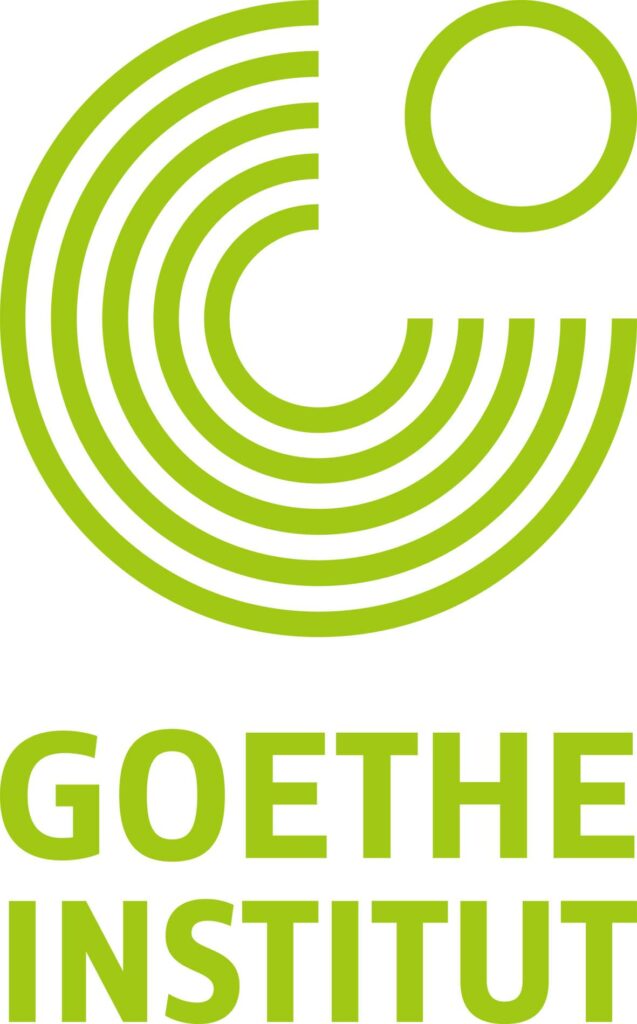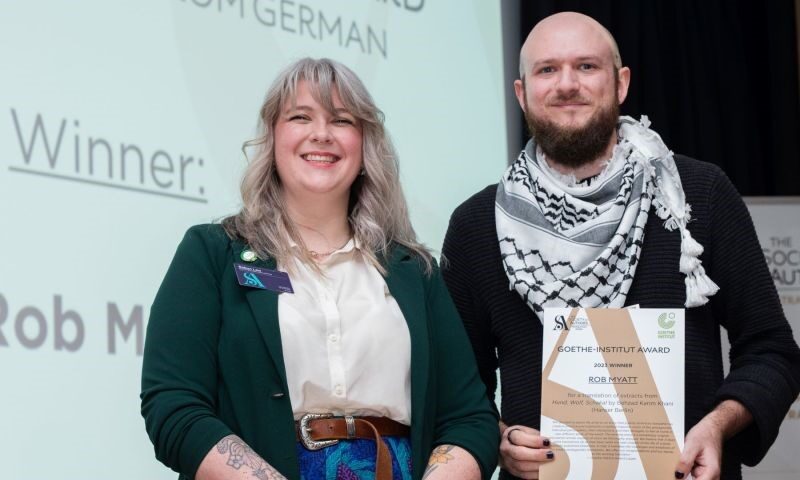The Society of Authors’ and the Goethe-Institut Londons’ biennial Goethe-Institut Award for New Translation.
The Goethe-Institut Award for New Translation was founded in 2010 and is presented by the Society of Authors and the Goethe-Institut London every two years. This translation prize is aimed at new and emerging translators whose literary translation work has not yet been published in print. Entry is open to UK nationals and those who have been resident in the UK or Ireland for the past three years.
The winner is awarded €1,000 and is invited to attend the Leipzig Book Fair (usually held in March each year), including a place at the International Translators’ meeting organised by the Literary Colloquium Berlin.
The Goethe-Institut Award is now closed for submissions.
The 2025 Goethe-Institut Award Winner
Nick Browne
Among many excellent renderings, the winning translation stood out for its elegance and accuracy. It dealt creatively with the text’s challenges, and contained just the right touches of wit and the vernacular, keeping it both modern and crisp. A most engaging piece of work.
2025 judges
The 2025 Goethe-Institut Award Runner Up
Sarah Escritt
This accomplished translation caught the actions and reactions very clearly, and brought the narrator’s voice to life with a great rendering of tone. It also picked up on allusions within the text to the book’s theme, and retained key cultural elements. Lively and balanced, the sentence flow was very well considered; it came a very close second indeed.
2025 judges
The 2025 Goethe-Institut Award Shortlist
For a translation of an extract from Der Beste Tag Seit Langem by Jana Volkmann provided for translation with kind permission of publisher Residenz Verlag.
Nick Browne
Sarah Escritt
John Macmillan
Amanda Oliver
Sarah Rimmington
“This atmospheric text by the Austrian writer Jana Volkmann, complete with unreliable narrator and errant horse, attracted a very high standard of submissions. Inevitably, fifty-four translators produced fifty-four very different texts. Our sometimes-converging, sometimes-unified perspectives proved invaluable as we trawled through to create our shortlist. We also realised this: even if you have a checklist of what you want to see in a winning rendition, it’s often the intangibles that make one in particular stand out.”
— The 2025 Goethe-Institut Award judges
With thanks, the judges for the 2025 Goethe-Institut Award are:
Monique Charlesworth:
Monique Charlesworth is a publisher, novelist and editor, who has also worked as a journalist and scriptwriter. Half German, she studied languages and has lived in France and Germany. She has published four novels and a memoir. She founded Moth Books with the aim of connecting across borders, publishing strong women’s voices in translation.
Jamie Lee Searle:
Jamie Lee Searle is a literary translator and mentor. She translates German-language and Portuguese-language works into English for publishing houses in the UK and beyond. Her most recent publication is a translation of Kim de l’Horizon’s ‘Blood Book’, which won the German and Swiss national book prizes in 2022. Jamie is a co-founder of the UK Emerging Translators’ Network and a Royal Literary Fund Fellow, and previously lectured at Queen Mary University of London. She has held translation and writing residencies in Geneva, New York, and Vienna.
2023
Rob Myatt for a translation of Hund, Wolf, Schakal by Behzad Karim Khani (Hanser Berlin).
2020
Kay McBurney for a translation of an extract from Die Fahrt by Sibylle Berg (Penguin Verlag).
2018
Mandy Wight for a translation of an extract from Unterleuten by Juli Zeh (Random House).
2016
Imogen Taylor for a translation of an extract from Momente der Klarheit by Jackie Thomae (Hanser Berlin).
2014
Caroline Waight for a translation of an extract from Fliehkräfte by Stephan Thome (Suhrkamp).
2012
Katy Derbyshire for a translation of an extract from the novel Das Geschenk by Wolf Wondratschek (Hanser).
The runner-up for the 2012 award was Helen MacCormac.
2010
Samuel Pakucs Willcocks for a translation of an extract from the novel Du bist zu schnell by Zoran Drvenkar (Klett-Cotta).
The runner-up for the 2010 award was Jamie Lee Searle.
Goethe-Institut London
The Goethe-Institut is the cultural institute of the Federal Republic of Germany with a global reach. We promote knowledge of the German language abroad, foster international cultural cooperation and convey a comprehensive image of Germany with 159 locations in 98 countries.
The Goethe-Institut London attracts a public interested in culture and education and is located on Exhibition Road with nearby access to world-class institutions.



